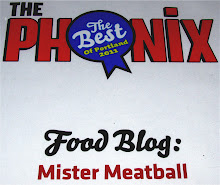Some time before our mother died, back in the winter of 2006, my brother Joe and I sent her to live in a nursing home. We did this reluctantly and not entirely of clear conscience, but we did it nonetheless.
While Joe and I shared responsibility for finding a good home for mom, most of the clerical work fell to me. There were matters pertaining to her debts and to Social Security benefits, a small checking account, insurance and so on, all requiring close attention and resolution.
My best resource in navigating through the necessary legal paperwork was a worn brown folder that mom kept hidden in the bottom of a dresser drawer. In it were things like her birth certificate and my father’s honorable discharge papers from the Army. There was a yellow Western Union telegram from the Vatican in Rome marking their marriage in 1954, the deed to the cemetery plot in Brooklyn where my father had been buried in 1970, along with many other useful and not so useful items.
Three documents, unrelated to the task at hand, stood out so far from the rest that they literally took my breath away. Each was folded and placed in a separate white envelope and each envelope had a single word written in my mother’s unsteady hand: “Michael,” “Joseph,” and “Ralph.”
Mom had written each of her three sons a goodbye letter.
And she didn’t seal the envelopes.
Through tears I managed to read only five words of my mother's letter to me: “You were a beautiful boy.”
The past tense of it all was more than I could bear and so I quickly folded the letter and returned it to the envelope where it belonged. I never told my mother that I'd found the letters, and didn't mention them to my brothers either.
Eighteen months later I finally managed my way through the rest of the letter. It was just after Joe called to say that mom had died. The night nurse had contacted him earlier in the evening to ask that he get to the nursing home as soon as he was able. But soon wasn’t soon enough. Mom died with a very lovely woman by her side but not any of the sons that she had dedicated her life to.
I delivered mom's letters to my brothers just as soon as we were all together. My wife Joan and I had driven down from Maine to New York early the next morning, Mike and his family flew in from Ohio the following day.
“I’m sorry I didn’t tell you guys about this sooner, but I figured this is probably the way she wanted it,” I told my brothers.
“I only read mine last night,” I assured Joe, “after you called.”
I don’t know when or under what circumstances my brothers read their letters; they didn't read them in front of me. I don't know what mom wrote to them either. We’ve never discussed it.
I tell myself that that’s okay. What a mother says to her son at the end is only her business and his, nobody else’s.
Mom's letter to me followed the same themes that defined her life: Never let anything or anybody get between you and the family; stay close to your brothers no matter what; be good to people; love one another.
I hope the letters in my brothers' hands are at least a little bit like the one our mother wrote to me. Because it all just sounded so very much like her.
And that's a sound worth hearing.
Again and again.
Happy Mother's Day everybody!














